In fall 2014, four of us —Xochitl-Julisa Bermejo, Ashaki M. Jackson, Ramona Pilar, and Tisha Reichle— collaborated on our first WWS grant proposal for the Surdna Foundation’s “Artists Engaging in Social Change” grant. We were not awarded funding, but what resulted was a clear plan for where we saw WWS going over the next year and beyond.
Starting in January 2015, Women Who Submit began holding monthly submission parties with public WWS orientations on the even numbered months. On February 14th, we held our first orientation and submission party at Here & Now in El Sereno where we were joined by three new members.
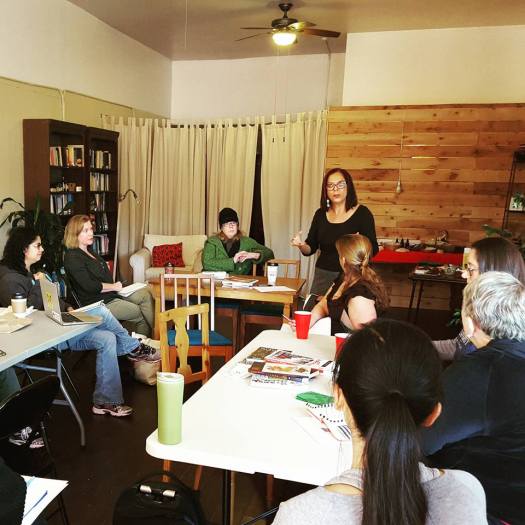
Désirée Zamorano leading a talk on confidence at
the December 2015 Orientation.
Over the year, we hosted five public WWS orientations and submissions parties at Here & Now. On the odd numbered months, we started traveling to members’ homes for private submission parties. In 2015, we traveled to Palos Verdes, Chinatown, and Glendale thanks to the generosity of members who invited us into their homes.
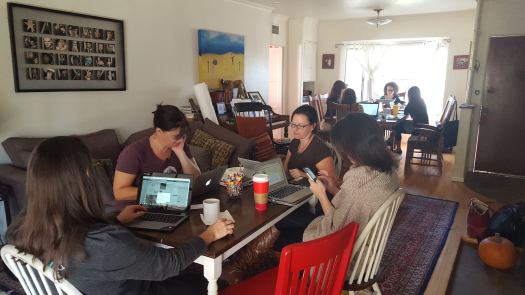
WWS members submitting work at the November 2015 submission party.
2015 has been a big year for Women Who Submit, and we are always up for celebrating accomplishments. Besides our commitment to monthly submission parties and bimonthly public orientations, we also built this blog, commissioned a logo, activated a Twitter account, presented at Lit Crawl L.A., held panels at Antioch University and the Pasadena Playhouse, hosted a 2nd annual WWS Submission Blitz at The Little Easy in Downtown L.A., and now we are assisting the development of WWS chapters in other cities including Las Vegas and San Francisco.
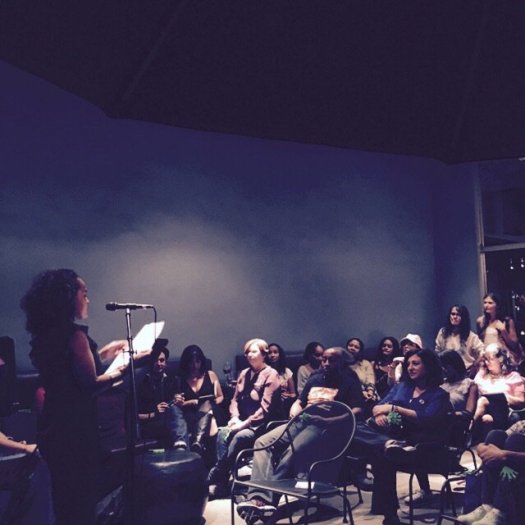
Laura Warrell reading before a packed house at Lit Crawl L.A.
But we don’t want to only celebrate the organization’s accomplishments. Individual members have been hard at work writing, submitting, tracking, and publishing and in order to celebrate their efforts, we sent a call asking members to share their submission numbers (submissions, rejections, and acceptances). 15 women responded to our request, and we now celebrate the following collective numbers based on their own records:
423 submissions
173 rejections
79 acceptances
171 pending
Thank you to the following journals, presses, conferences, residencies, and funders for accepting work from one or more of our members. We also celebrate the work you did over the year reading submissions, sending out responses, editing and publishing work in order to share exciting and new voices with the larger community.
Accentos Review
Al Jazeera America
American Poetry Review
Barbara Deming Fund
BinderCon
Cactus Heart
Cal Arts
Callaloo Workshop
Cave Canem/VSC
Cherry Tree
crazyhorse
CURA: A Literary Magazine (#BLM)
The Daily Dot
Economic Hardship Reporting Project
Finishing Line Press
Flash Flash Click
Future Tense Books
Germ Magazine
The Guardian
Hedgebrook
HelloGiggles
The Huffington Post
Hometown Pasadena
Horse Less Review
Hunger Mountain
Inch
Into the Heart of Addiction
The James Franco Review
Jezebel
KCET Departures
KCRW
LA Review of Books
The Los Angeles Times
Lumen Magazine
Lunch Ticket
The Manifest-Station
Miel and 111O Press
MUTHA Magazine
Mujeres de Maiz
The Nervous Breakdown
New Madrid
The Philadelphia Review
Pluck!
Poets & Writers
Prairie Schooner
Red Hen Press
Redux
RoleReboot
Rose City Sisters
The Rumpus
The Rusty Toque
Solo Parent Magazine
Sundress Publications
Sundress Political Punch Anthology
TAB: The Journal of Poetry & Poetics
Tahoma Literary Review
Tia Chucha Press Coiled Serpent Anthology
Thread Makes Blanket
Tucson Festival of Books
Upper Rubber Boot
Vida Web
YesYes
Please leave us a comment sharing where you’ve been accepted this year. We want to clap for you too!

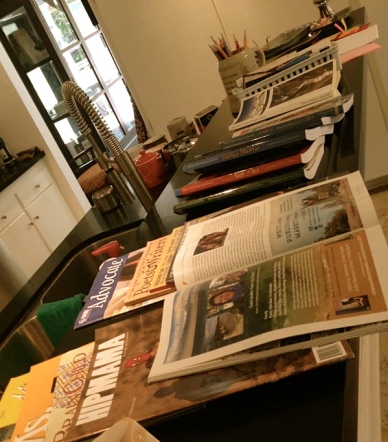

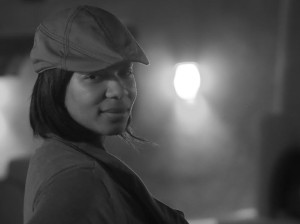
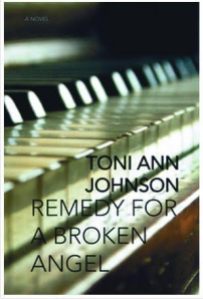


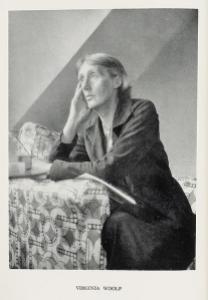 have value? This is a question all poets have asked themselves in the dark of night when they think no one is listening. Shakespeare killed his poets or likened them to lunatics in his plays and Virginia Woolf wrote in A Room of One’s Own, “[The world] does not ask people to write poems and novels and histories; it does not need them. It does not care…Naturally, it will not pay for what it does not want,” so how do we move forward when seemingly no one values our work?
have value? This is a question all poets have asked themselves in the dark of night when they think no one is listening. Shakespeare killed his poets or likened them to lunatics in his plays and Virginia Woolf wrote in A Room of One’s Own, “[The world] does not ask people to write poems and novels and histories; it does not need them. It does not care…Naturally, it will not pay for what it does not want,” so how do we move forward when seemingly no one values our work?
